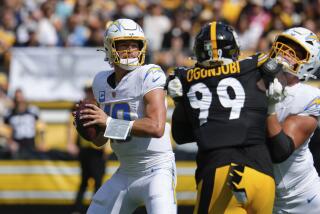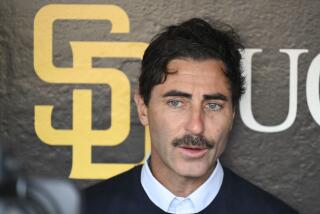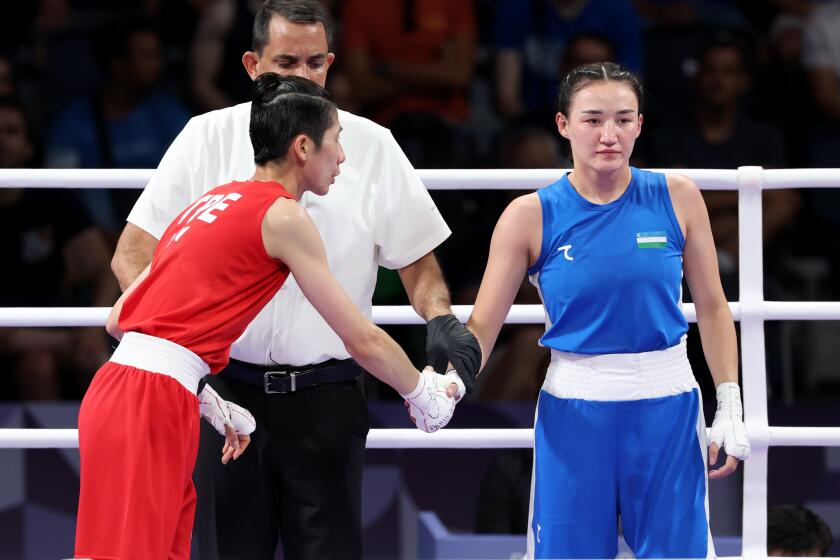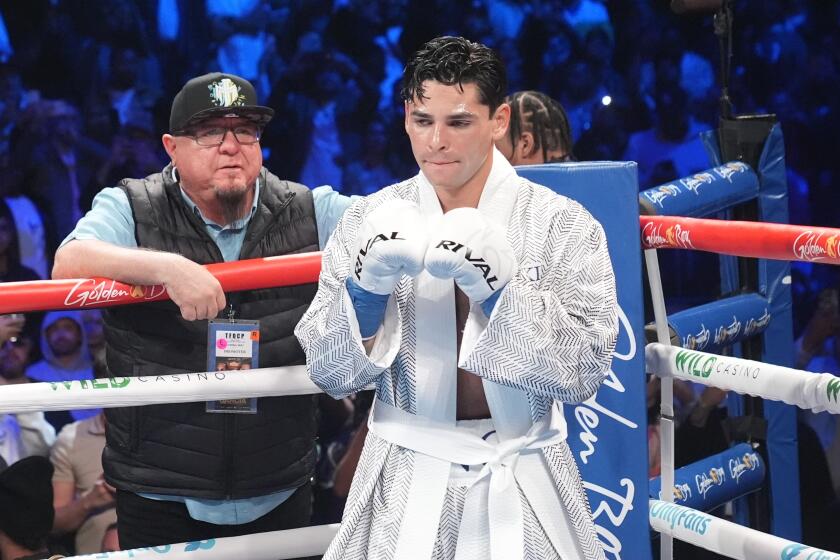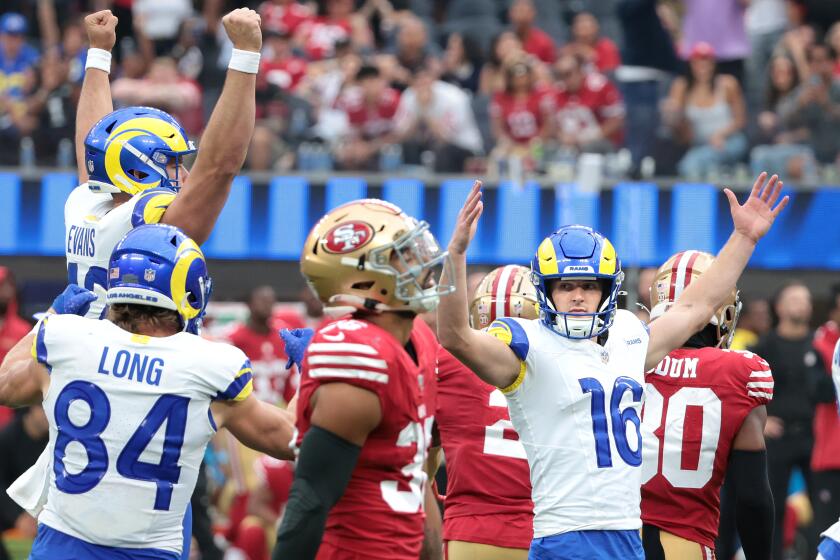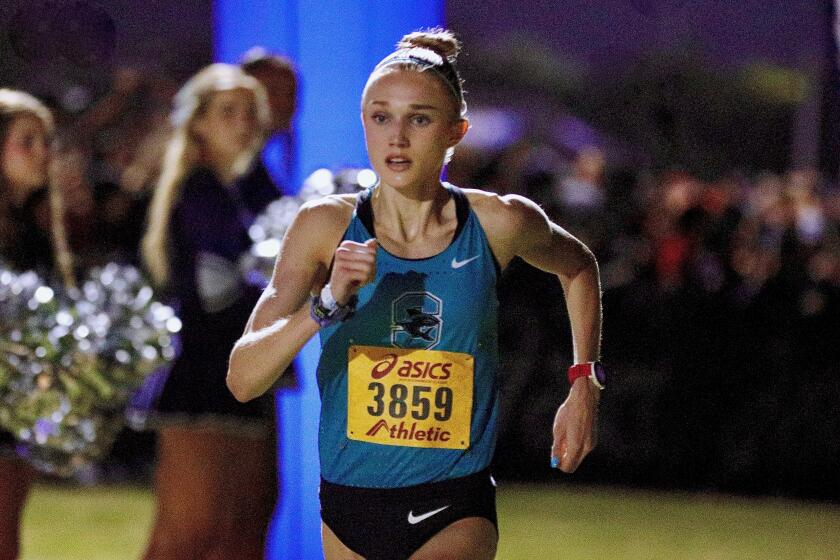Shadow Boxing
There were more empty seats than fans when heavyweight Corrie Sanders stepped into the ring that night in 2002 in Oklahoma City. The television cameras were still being adjusted, the concessions stands were just opening, the parking lot was still nearly empty.
Nothing new for Sanders. He was fully aware of his role as a prelim fighter who was expected to sweat and struggle, and bleed if necessary, to whet the appetites of the arriving fans for the big-name fighters to follow.
On that particular night, the bigger names were welterweights Sharmba Mitchell and Vince Phillips, fighting in the main event. On the undercard, Sanders was one of a contingent of South Africans. But even in this lower-profile group, he stood third, behind lightweight Phillip N’dou and bantamweight Silence Mabuza.
It was embarrassing. Sanders, at 36, still was flailing away in the shadows.
Sanders won that night, beating Otis Tisdale on a second-round TKO, not that anyone noticed.
Everybody noticed, though, the next time Sanders stepped into the ring. That was four months later in Hannover, Germany, where he stunned the boxing world, knocking down Wladimir Klitschko four times in the first two rounds, winning on a TKO that made him the World Boxing Organization’s heavyweight champion.
Saturday at Staples Center, Sanders will have chance to complete one of the unlikeliest one-two punches in boxing history when he fights Wladimir’s brother Vitali for the vacant World Boxing Council heavyweight championship, generally recognized as the division’s bona fide title.
“No one in South Africa saw this coming,” said Jermaine Craig, a sportswriter for the Star, a Johannesburg newspaper. “No one anticipated Corrie Sanders going from kingmaker to king. The biggest moment in South African boxing history was when Hasim Rahman knocked out Lennox Lewis [in 2001], but that was because it happened in South Africa. If Corrie Sanders wins Saturday night, it would be bigger. Almost like Charlize Theron winning the Oscar, which was so big in South Africa, it knocked the hard news off the front page.”
Theron, also a South African, has been invited to sit ringside Saturday night. So has another South African, golfer Ernie Els.
Asked this week to reflect on the dramatic shift in his fortunes, Sanders shrugged and said, “My life has changed nicely.”
He knows better than to say more. Sanders, the boxer, has been up and down more than a drunken sailor on a stormy sea.
When he first put the gloves on, at the behest of his father Henie in his native Pretoria when he was 7, Sanders was ready to take them off immediately after getting hit.
“I cried,” he said.
But soon, opponents were crying. Sanders compiled an amateur record of 180-11, including four victories over future heavyweight contender Francois Botha. Sanders won seven South African national amateur titles over a nine-year span.
The next logical step would have been the Olympics, but that path was blocked by an Olympic ban of South Africa because of that country’s apartheid policy.
Instead, Sanders turned pro and, in his debut, scored a first-round knockout over King Kong Dyubele in Cape Town, South Africa.
Where do you go after beating King Kong? Sanders went on to fight Samson Mahlangu and Moses Mthaha.
King Kong, Moses and Samson might be big names, but their namesakes proved to be little more than stiffs. Sanders got nothing from those victories but a reputation as a mediocre fighter.
Opportunities were offered, then snatched away. He was set to fight Roy Jones. He thought he was going to fight Michael Grant. He was on Mike Tyson’s short list. But he could never get the signatures of such attractive opponents on contracts.
Then, he finally got Rahman in 2000. They fought in Atlantic City and Sanders, after all the years of struggling, blew it. Rahman floored Sanders twice and stopped him in the seventh round.
End of story for Sanders, who decided to retire.
“It was gone,” he said. “It was not for me anymore.”
He would go back to South Africa, back to playing golf, back to the idea of setting up a hunting farm to earn a modest but satisfying living.
His trainer, Harold Volbrecht, had other ideas. “He just needed a couple of days to think it over,” Volbrecht said. “He had suffered a knee injury before the fight and couldn’t run. That hurt his stamina.”
Sanders came back and beat Michael Sprott and Tisdale, and then came Wladimir Klitschko.
As they were ready to head for the ring for the Klitschko match, Volbrecht looked into Sanders’ eyes and said, “I have been believing in you for 14 years. It’s time you believed in yourself.”
Twenty-seven seconds into the second round, Sanders made believers out of many doubters.
He embraced his father and there was crying, just as there had been when Corrie was 7. But these were tears of relief.
No more preliminary bouts. No more looks of disdain from ringsiders. No more King Kongs.
Only another Klitschko, dead ahead.
“This could have happened six or seven years ago, but at least I’ve got it now,” Sanders said. “At age 38, I’ve got nothing to lose. This is for the title everyone will recognize. All the pressure’s on [Vitali]. For me, either way, whatever happens, I can now say I’ve had a nice career.”
More to Read
Go beyond the scoreboard
Get the latest on L.A.'s teams in the daily Sports Report newsletter.
You may occasionally receive promotional content from the Los Angeles Times.

